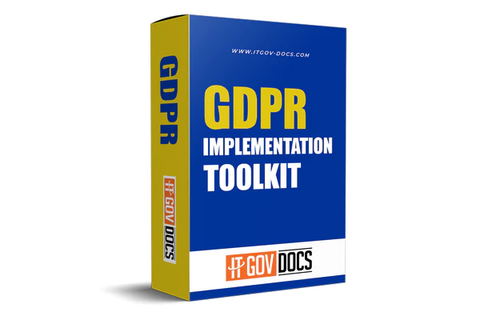CCPA V/S GDPR : Differences and Compliance
What is CCPA?
CCPA stands for the California Consumer Privacy Act, which is a privacy law that applies to businesses operating in California that collect personal information about California residents.
The law gives California residents certain rights with respect to their personal information, such as the right to know what personal information is being collected about them.

What is GDPR?
GDPR stands for the General Data Protection Regulation, which is a privacy law that applies to businesses operating in the European Union (EU).
The GDPR gives EU citizens certain rights with respect to their personal data, such as the right to access their personal data, the right to request that their personal data be corrected or deleted, and the right to object to the processing of their personal data.
Additionally, the GDPR requires businesses to obtain explicit consent from EU citizens before collecting, processing, or sharing their personal data, and to notify individuals and authorities in the event of a data breach.
Differences between CCPA and GDPR

Key Provisions of CCPA
I. Right to know what being collected :
Consumers have the right to request what personal information a business has collected about them. Businesses must provide a copy of the personal information upon request.
II. Right to deletion :
Consumers have the right to request that a business delete their personal information. Businesses must comply with deletion requests, subject to certain exceptions.
III. Right to opt-out :
Consumers have the right to opt-out of the sale of their personal information by a business.
IV. Right to non-discrimination :
Consumers have the right to non-discrimination for exercising their privacy rights under the CCPA.
Businesses cannot discriminate against consumers for exercising their rights, such as by denying goods or services, charging different prices.
Key Provisions of GDPR
I. Right to be informed :
Individuals have the right to be informed about the collection and use of their personal data. Businesses must provide transparent and easily accessible information about their data processing activities.
II. Right of access :
Individuals have the right to access their personal data and any information about how it is being used. Businesses must provide individuals with a copy of their personal data upon request.
III. Right to rectification :
Individuals have the right to have their personal data corrected if it is inaccurate or incomplete.
IV. Right to erasure (Right to be forgotten) :
Individuals have the right to have their personal data erased in certain circumstances, such as if it is no longer necessary for the purpose it was collected.
Compliance of CCPA :

The key requirements for compliance include:
1.Notifying residents of their rights :
Businesses must provide a notice at or before the point of collection that informs consumers of their rights under the CCPA. This notice must include information about the categories of personal information being collected, the purposes for which the information will be used, and the rights of consumers.
2.Consumer requests :
Businesses must provide a way for consumers to submit requests to know and requests to delete their personal information. Businesses must also provide a way for consumers to opt-out of the sale of their personal information. They must respond to requests within 45 days of receiving them.
3.Data security measures :
Businesses must implement and maintain reasonable security procedures and practices to protect consumers' personal information.
4.Data Protection Officer (DPO) :
Businesses should appoint a DPO to monitor compliance with the CCPA.
5.Complaint handling mechanism :
Businesses should establish a complaint handling mechanism to resolve any disputes or complaints related to personal information.
6.Employee training :
Businesses should provide training to employees handling personal data.
Compliance of GDPR :

The key requirements for compliance include:
1.Data Protection Impact Assessment (DPIA) :
Businesses must conduct a DPIA for high-risk processing activities to identify and mitigate any potential risks to individuals’ rights and freedoms.
2.Valid consent :
Businesses must obtain valid consent for the collection, use, and storage of personal data.
3.Technical and organizational measures :
Businesses must implement appropriate technical and organizational measures to ensure compliance with the GDPR, including regular risk assessments.
4.Transparent information :
Businesses must provide transparent and easily accessible information about their data processing activities, including their contact details, the purposes for processing personal data, and the retention periods for that data.
5.Data breaches :
Businesses must report data breaches to the relevant supervisory authority within 72 hours of becoming aware of the breach, and to the affected individuals if the breach poses a high risk to their rights and freedoms.
6.Regular reviews :
Businesses must regularly review and update their privacy policies, procedures, and systems to ensure compliance with the GDPR.



